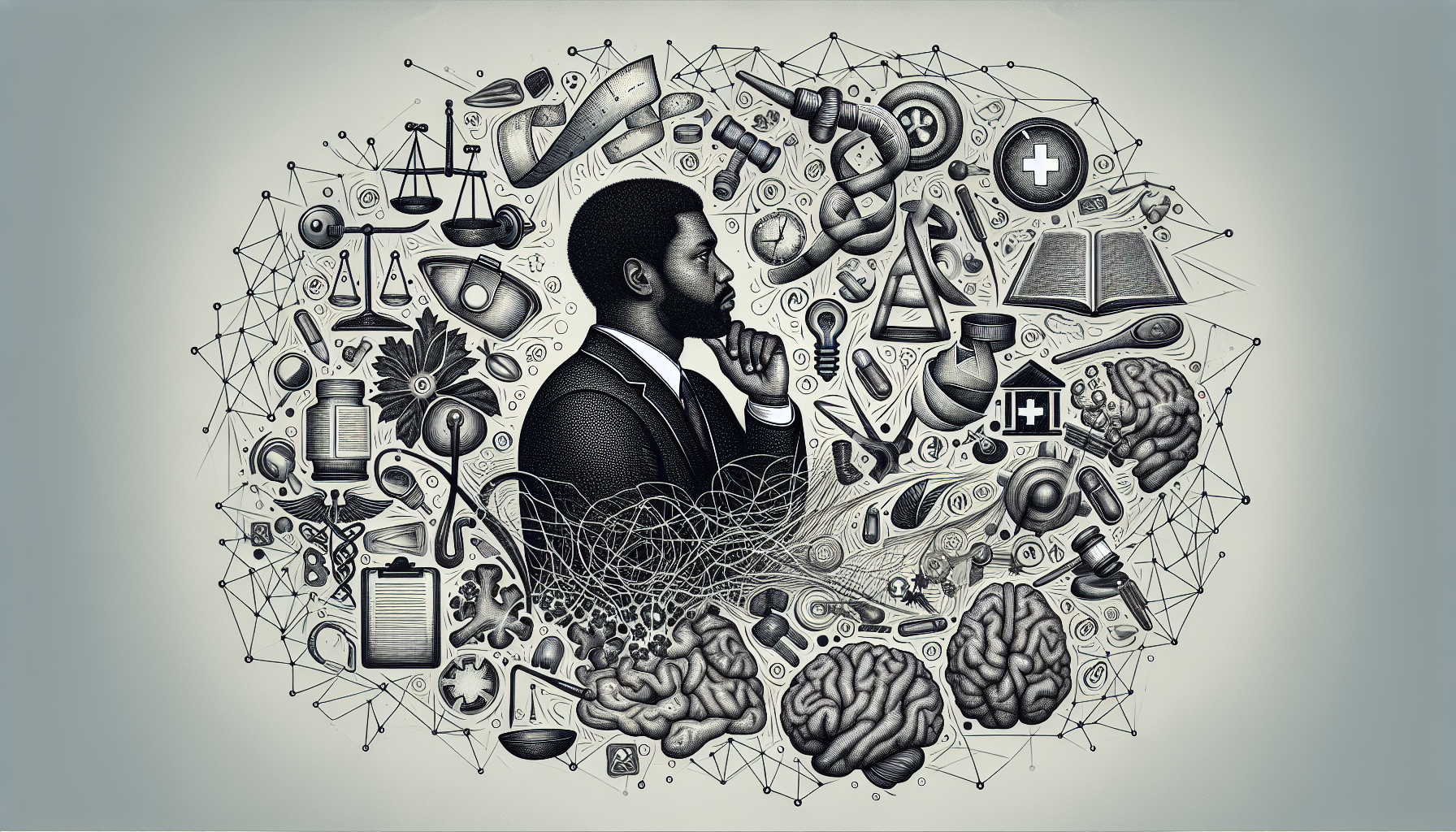
Unveiling the Power of AI in Legal Research
In an age where efficiency and precision are paramount, AI has emerged as a transformative element in modern law practices. Leveraging the sophisticated capabilities of AI, particularly in the realm of pre-trial research, can significantly boost the productivity of legal teams. At the forefront of this evolution is ChatGPT, an advanced language model developed by OpenAI, along with other large language models (LLMs). These tools are revolutionizing how paralegals and legal professionals conduct research, enabling them to swiftly navigate through vast bodies of legal texts to find pertinent information.
Incorporating AI into legal research not only streamlines the process but also provides deeper insights and comprehensive analyses, essential for constructing formidable legal arguments. With a solid understanding of AI’s role, the next step involves setting up the tools to embark on this journey.
Setting Up for Success: Preparing ChatGPT for Legal Research
The initial step in harnessing the power of ChatGPT for legal research entails setting up your account and ensuring secure access. Start by creating a dedicated account with OpenAI or any chosen provider, configuring it to suit your specific legal research needs. It’s crucial to adhere to data confidentiality and compliance standards consistent with legal practice. This includes utilizing secure connections and keeping sensitive information encrypted.
Moreover, customizing the settings within ChatGPT to optimize for legal queries is imperative. Adjusting parameters such as response length, creativity, and context retention ensures that the outputs are not only relevant but also precise. Tailoring these settings will also help in maintaining the integrity and confidentiality of client data, which is non-negotiable in the legal domain.
Once properly set up, effective usage of ChatGPT pivots on mastering the art of prompt crafting, a skill crucial for deriving accurate and useful insights.
Also read:
Mastering the Art of Prompt Crafting
Effective prompt crafting is the key to extracting valuable information from ChatGPT. Prompts need to be precise, contextual, and structured to yield the desired outputs. This section delves into the intricacies of crafting effective prompts for various legal research needs.
Introduction to Effective Prompting
Start by familiarizing yourself with basic prompt structuring. Queries should be clear and direct, avoiding ambiguity. For instance, instead of asking “What does the Fourth Amendment cover?”, a more precise prompt would be “Summarize the main protections offered by the Fourth Amendment in the U.S. Constitution.”
Structuring Queries for Specific Information
When seeking specific information, such as case law or statutory provisions, structure your prompts to target the desired output:
- Case Law: “Find leading cases on Fourth Amendment violations related to search and seizure.”
- Statutes: “List the key provisions of the Digital Millennium Copyright Act (DMCA).”
Avoiding Ambiguity: Precision and Contextual Clarity
Precision is paramount. Specify the jurisdiction, time frame, or any particular facet of the law you need information on. For instance, “Retrieve New York state cases from the last decade involving breach of contract.” This avoids the pitfall of receiving overly broad or irrelevant responses.
Utilizing Follow-up Questions for Deep Dives
Don’t hesitate to follow up your queries to delve deeper. For example, after obtaining a list of cases, you might ask, “Summarize the ruling in the U.S. v. Jones case regarding GPS surveillance.” This iterative approach refines the information, ensuring comprehensive coverage of every angle.
With a grasp on prompt crafting, the next phase involves leveraging ChatGPT to gather and synthesize pre-trial intelligence efficiently.
Also read:
Pre-Trial Intel: Extracting and Synthesizing Information
Armed with finely-tuned prompts, ChatGPT can become an indispensable tool for extracting pre-trial intelligence. The following techniques can bolster the depth and reliability of your research.
Identifying Relevant Case Law and Precedents
Utilize ChatGPT to sift through vast legal databases, pinpointing relevant cases and precedents. Ask for case summaries, or specific rulings, and cross-reference outcomes to ensure you have a robust understanding of the legal landscape pertinent to your case.
Summarizing Statutory Provisions and Amendments
ChatGPT excels at condensing complex statutory language into comprehensible summaries. For example, requesting “Summarize the key amendments to the Fair Labor Standards Act (FLSA) from 2000 to present” can provide a clear, at-a-glance view of legislative changes, crucial for formulating arguments and anticipating potential counterpoints.
Techniques for Cross-Referencing Information
Accuracy is critical. Cross-referencing information from multiple sources using ChatGPT ensures reliability. Ask for comparative analyses, such as “Compare the interpretations of the Commerce Clause in Wickard v. Filburn and Gonzales v. Raich.” This method helps in constructing arguments grounded in a comprehensive understanding of legal precedents and their implications.
With well-synthesized information, the next step is to leverage these insights strategically for the defense.
Also read:
Building a Defense Strategy: Leveraging Insightful Outputs
Once the relevant information is synthesized, it’s time to build a potent defense strategy. ChatGPT’s insights can provide a multi-faceted view of the case, aiding in crafting a more informed and robust defense.
Analyzing Prosecution Arguments Using AI
Start by presenting the AI with the prosecution’s arguments and evidence. Prompts such as “Analyze the prosecution’s argument regarding the defendant’s intent in the case of People v. Smith” can help dissect and understand the strengths and weaknesses in their stance. This analysis can unearth potential loopholes or areas ripe for counter-argument.
Generating Potential Defense Angles
Next, leverage ChatGPT to brainstorm potential defense strategies. For instance, “Suggest defense angles for a case involving alleged embezzlement of company funds” can yield novel approaches or reinforce traditional strategies with detailed, AI-driven insights.
Using AI to Predict Opposing Counsel Strategies
Another powerful application of ChatGPT is in anticipating the moves of the opposing counsel. Prompts like “Based on common tactics in fraud cases, predict possible arguments the prosecution might use” can prepare your legal team to counter strategies with well-thought-out rebuttals.
With a solid defense strategy in place, integrating these AI-driven tasks into daily workflows can maximize efficiency and effectiveness.
Also read:
Practical Tips: Integrating AI Tasks into Daily Workflows
Streamlining AI tasks into your regular workflow can significantly enhance time management and output quality. Here are a few practical tips:
Task Automation for Time Efficiency
Automate repetitive tasks such as summarizing case laws, generating legal memos, or tracking legislative changes using ChatGPT. Setting up automated workflows can save valuable time, allowing you to focus on more complex legal analysis and client interaction.
Integrating AI Outputs with Existing Legal Software
Ensure that the outputs from ChatGPT seamlessly integrate with your existing legal software. Tools like Clio, PracticePanther, or MyCase can be enhanced by incorporating AI-generated insights, making your case management more robust and streamlined.
Maintaining Balance: Human Oversight on AI Recommendations
While AI enhances efficiency, it is crucial to apply human oversight to all AI-generated recommendations. This ensures that the insights align with legal standards and ethical practices, maintaining the high quality and accuracy required in legal proceedings.
As we integrate AI into our legal practices, it’s essential to remain vigilant about ethical considerations.
Also read:
Ethical Considerations and Best Practices
Upholding ethical standards while harnessing AI is crucial. Here are some best practices:
Upholding Client Confidentiality and Ethical Standards
Ensure that all client interactions and data processing through AI platforms adhere to confidentiality agreements and ethical standards. Employ strong data encryption and access controls to protect sensitive information.
Navigating Biases and Ensuring Fair AI Usage
AI systems can inherit biases present in their training data. Regularly review and audit AI outputs to identify and mitigate any biases, ensuring fair and impartial legal research outcomes.
Continuous Learning and Staying Updated with AI Trends
Stay abreast of the latest developments and trends in AI technology. Continuous learning through professional courses and workshops can help you leverage AI tools more effectively, maintaining a competitive edge.
With these ethical practices in place, let’s recap and look forward to future applications.
Also read:
Leaving No Stone Unturned: Final Thoughts and Next Steps
Integrating AI into pre-trial research exemplifies a step towards efficiency, accuracy, and robust legal practice. By mastering prompt crafting, extracting comprehensive intel, and strategically leveraging insights, paralegals can significantly enhance their contributions to defense strategies.
Embrace experimentation with AI tools to uncover their full potential. Continue adapting and refining your approach, ensuring you remain at the forefront of this technological evolution. For ongoing support, numerous resources and learning platforms are available to further enhance your skills.
In this era of rapid technological advancement, leveraging AI smartly can redefine how legal research is conducted, propelling your legal practice into new heights of excellence and efficacy. The journey begins now.


